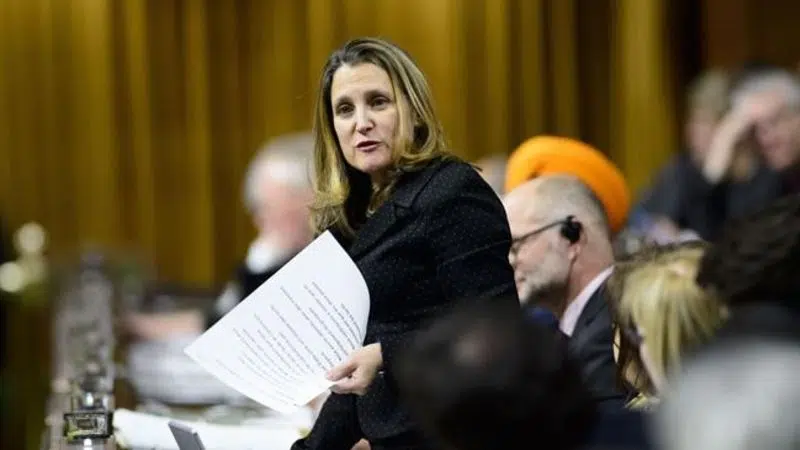
Freeland travels to Washington to talk tariffs, trade and terrorism
WASHINGTON — The U.S. will continue to lead the fight against Islamic State militants in the Middle East, Secretary of State Mike Pompeo insisted Wednesday — notwithstanding President Donald Trump’s apparent impatience to get American soldiers out of Syria.
Pompeo made the commitment as he kicked off the annual gathering of ministers, dignitaries and officials at the Global Coalition to Defeat ISIS, a 79-member group that includes Canada. Foreign Affairs Minister Chrystia Freeland was late to the party, missing the morning session and the midday group photo thanks to weather delays in Toronto.
“The drawdown of troops is essentially a tactical change — it is not a change in the mission,” Pompeo said in his opening remarks.


